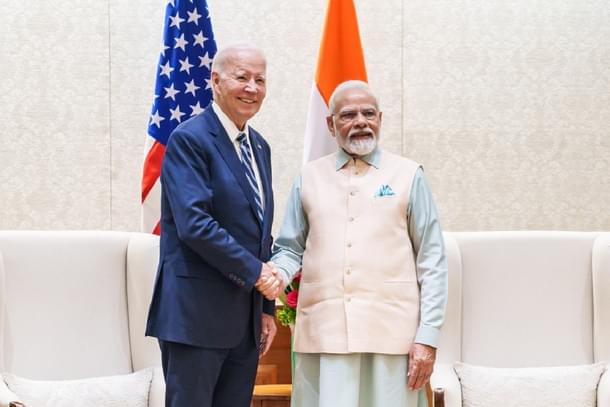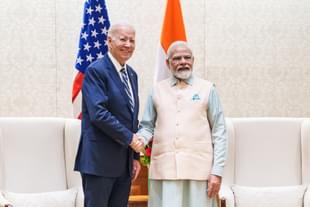News Brief
Explained: The Changed Stance Of G20 On The Russia-Ukraine War
Swarajya Staff
Sep 09, 2023, 09:12 PM | Updated 09:12 PM IST
Save & read from anywhere!
Bookmark stories for easy access on any device or the Swarajya app.


G20 leaders have refrained from condemning Russia's invasion of Ukraine in a joint statement, as China and Russia opposed language that placed blame on Moscow for the conflict.
This highlights a lack of global consensus in support of Kyiv.
The declaration from the New Delhi summit only mentions the "war in Ukraine", a phrasing rejected by supporters of Kyiv, such as the US and NATO allies, as it implies equal culpability on both sides.
This statement, crafted through extensive diplomatic negotiations over weeks, deals a blow to Western nations that have been striving to persuade developing countries to condemn Moscow and stand with Ukraine.
In contrast, the previous G20 declaration in Indonesia last November explicitly referred to "aggression by the Russian Federation against Ukraine." Western diplomats argue that China's refusal to endorse this wording played a pivotal role in prompting host India to propose a compromise.
India's External Affairs Minister, S Jaishankar, stated, "It is a fact that this is today a very polarising issue and there are multiple views on this. There are a spectrum of views on this, so I think in all fairness it was only right to record what was the reality in the meeting rooms."
A spokesperson for Ukraine’s Foreign Ministry, in response to the statement, said, "In terms of Russia’s aggression against Ukraine, the Group of Twenty has nothing to be proud of. It is obvious that the participation of the Ukrainian side would allow the participants to better understand the situation."
The declaration also includes a commitment from the leaders of the world’s largest economies to "pursue and encourage efforts to triple renewable energy capacity globally," but does not set a deadline for phasing out fossil fuels.
China and Saudi Arabia were instrumental in blocking such language in G20 meetings in July, as reported by Financial Times.
For India and its Prime Minister Narendra Modi, adopting this declaration marks a foreign policy victory, especially amid speculation that divisions over Ukraine might be insurmountable.
The joint statement highlighted the humanitarian suffering and adverse impacts of the war in Ukraine on global food and energy security, supply chains, macro-financial stability, inflation, and growth. Different views and assessments of the situation were acknowledged.
While the declaration calls for a "just and durable peace in Ukraine", it does not explicitly tie this demand to the importance of Ukraine’s territorial integrity, as Western countries had advocated. It also omits the statement from the 2022 version that noted "most members strongly condemned the war."
The removal of Western criticism of Russia allowed the G20 to find common ground on other issues, such as a commitment to resume exports of Ukrainian grain through the Black Sea, according to a senior Western official present at the summit, who emphasised the necessity of compromise to maintain consensus.
India, positioning itself as a leader of the Global South group of developing nations, also successfully advocated for the African Union to become a full member of the G20.
The joint statement also touches on digital public infrastructure, an initiative championed by India as a model for financial inclusion and economic productivity gains. This comes after India's successful efforts to connect over 1 billion people to the Internet during its presidency.





